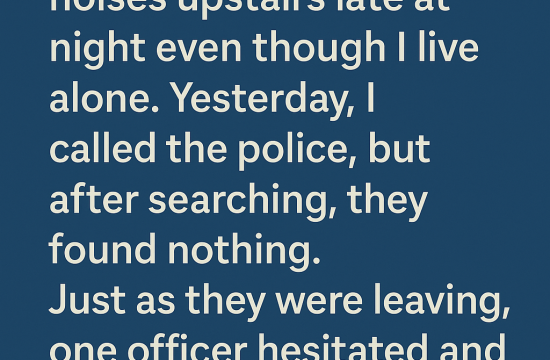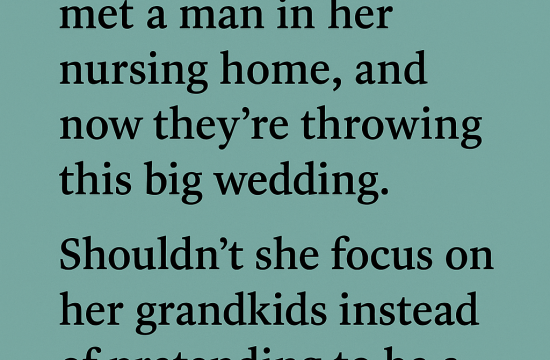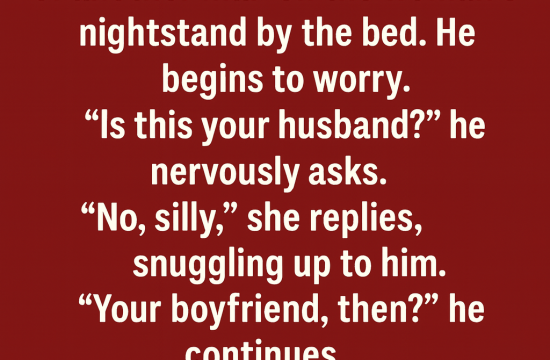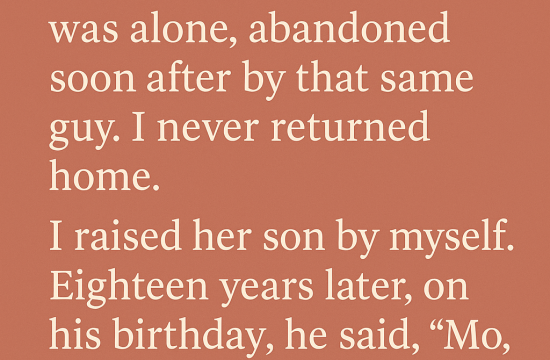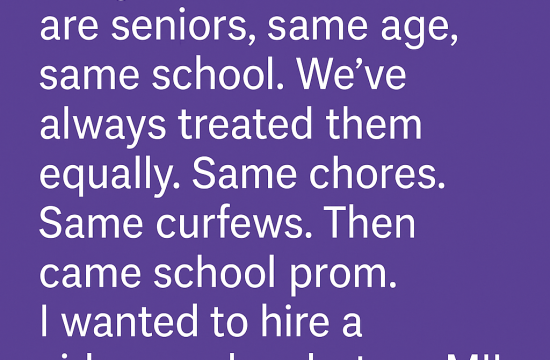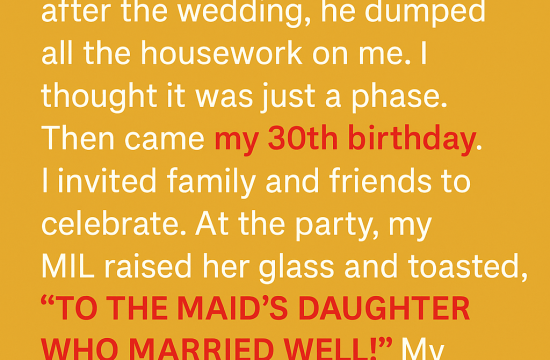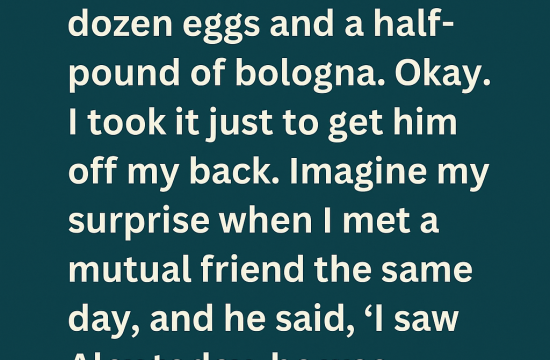My daughter, 7, came home crying. Her teacher had told her, “Your dad must regret having you!” I was furious. How could an educator say something so cruel? I stormed into the school the next day to confront her, but Ms. Ayala only looked at me calmly and asked, “Have you checked your daughter’s bag?”
That night, I froze when I found a crumpled envelope at the bottom of Nila’s backpack. It was addressed to “Mr. Salazar” in messy handwriting. Inside was a folded sheet of lined paper, covered in pink hearts. The words in the center made my stomach twist:
“I wish you were my real dad.”
Signed underneath: “From Anya.”
Anya wasn’t my daughter.
I sat on the couch staring at the note like it was on fire. Nila was in her room, humming while coloring, completely unaware. My thoughts spiraled—Who was Mr. Salazar? Why was my daughter writing notes like this? And how did her teacher know?
The next morning, I walked Nila to school instead of putting her on the bus. I tried to keep things normal—stopping for her favorite guava pastry—but my chest was burning with questions. At school, I asked to see Ms. Ayala privately.
She led me into the empty art room and shut the door. “I didn’t mean to hurt your daughter’s feelings yesterday,” she began, “but I needed to get your attention.”
“By insulting her?” I snapped.
“I had no choice,” she said softly. Then she showed me a note she’d written down from memory: “Nila says she has a second dad who buys her gifts and picks her up when you’re working. She says she wishes he lived with her instead.”
My throat went dry. She slid a field-trip permission slip across the table—signed “Nila’s dad” in handwriting that wasn’t mine.
That night, I couldn’t hold back anymore. Over breakfast the next day, I asked lightly, “Hey, Nila, who’s Mr. Salazar?”
Her eyes lit up. “He’s fun! He buys me strawberry milk after school. He’s Mommy’s friend. He drives me home when you’re working late.”
My stomach dropped. My wife, Liana, had been telling me she was working overtime twice a week.
That Tuesday, I left work early and waited by the school. At 3:15, I saw Nila run into the arms of a tall man in a gray polo. He hugged her like it was natural, and together they walked to a black SUV. I snapped a photo, my hands shaking.
I followed them to a café where he bought her strawberry milk and handed her a small box with a glittery bracelet inside. My daughter beamed.
That night, I confronted Liana. At first, she went pale. Then came the excuses: “He’s just a friend. He helps out sometimes.” But when I showed her the photo, she admitted Mr. Salazar was a coworker she had grown “close” to. She swore there was no affair, but confessed she’d leaned on him emotionally when our marriage had felt distant.
I was livid—not just at her, but at myself for being absent enough that another man stepped into our daughter’s life.
The weeks that followed were brutal. We argued. We cried. The trust between us was shattered glass on the floor. But then Ms. Ayala sent another envelope home—this time with a drawing Nila made of just the three of us holding hands.
It hit me then: Ms. Ayala wasn’t trying to shame Nila. She was trying to protect her—from confusion, from divided loyalties, from the damage of grown-up mistakes.
Liana and I started family counseling. The first session was gut-wrenching—Nila asked why “Mommy’s friend” couldn’t come over anymore. We told her sometimes adults make choices that aren’t good for the family, and she seemed to accept it, though she looked sad.
Counseling forced Liana and me to face truths we’d been avoiding. She admitted she felt unseen and unheard. I admitted I’d buried myself in work and left her carrying the emotional weight of our home. Slowly, painfully, we began to rebuild.
I started leaving work early to pick Nila up twice a week. We introduced “no phone” dinners every Friday. I made space for conversations with Liana that weren’t about bills or chores. It wasn’t easy, but over time the tension softened.
Then, one Saturday morning, Nila gave me a handmade card. In big colorful letters it said, “Best Dad.” Inside was a drawing of us eating guava pastries together. Tears stung my eyes.
Months later, I learned Mr. Salazar had been transferred to another department. When he once tried to come by the school asking to see Nila, Ms. Ayala firmly turned him away. I wrote her a thank-you note. Her reply still stays with me:
“Sometimes you have to knock loud enough on a door for someone to finally answer.”
Looking back, I realize the note in my daughter’s bag nearly tore my family apart. But it also saved us. It forced me to open my eyes, to stop coasting, and to start showing up—not just as a father, but as a husband too.
Family cracks don’t appear overnight, and they don’t heal overnight either. But if you face them honestly and refuse to look away, even the sharpest edges can be smoothed down.
And now, whenever Nila wears that glittery bracelet, she smiles and says, “Daddy gives better hugs.”




